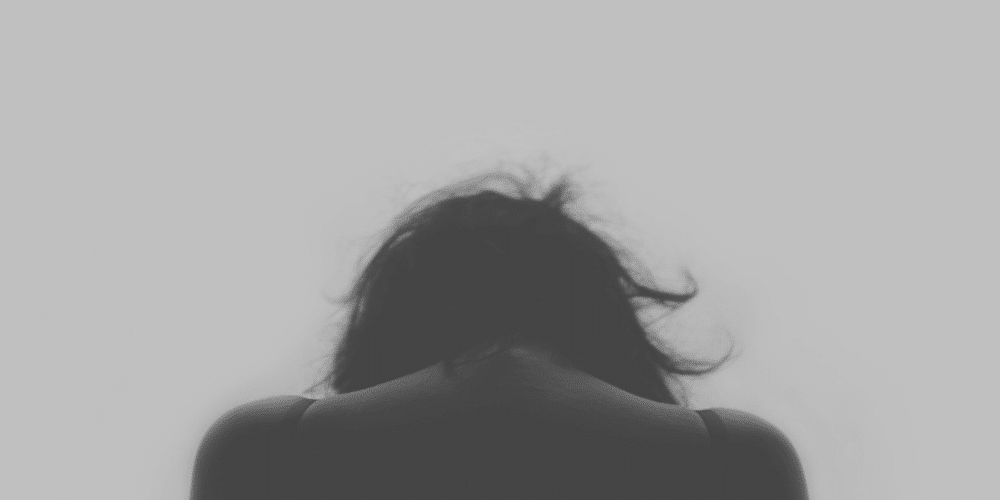Why We Hurt Ourselves Emotionally and How to Stop

“It is not what I am saying that is hurting you; it is that you have wounds that I touch by what I have said. You are hurting yourself.”
— Miguel Ruiz
My family moved to a small town in Texas during the summer between the third and fourth grade. I was well-liked at the school that I’d attended since Kindergarten. But when we moved and I started fourth grade in the new town, I struggled to make friends.
I suddenly felt extremely shy. I preferred to take long bathroom breaks during recess than try to make friends or seem like an outcast who walked around the playground alone.
One day after recess, we walked in and there were envelopes on nearly every student’s desk. A boy in the class had handed out invitations for his birthday party. My desk didn’t have an envelope.
I’d never spoken to this boy, but I was devastated. I was sure I was the only student in the class he didn’t invite. I cried to my mom later that night, who called the teacher and, the next day the boy gave me an invitation to his birthday party.
But it was too late. I knew he didn’t want to invite me to the party and I felt awful after getting a pity invitation.
Twenty (or so) years later, and I still have moments where that exact same emotional hurt creeps up — the loneliness and sadness that accompanies being excluded. I don’t consider myself an overly sensitive person, but being left out triggers my deepest fears and insecurities. At my core, it’s a fear of not being good enough for other people.
Why We Hurt Ourselves Emotionally
Why does this matter? It’s often that the things that other people do or say to us are much less about them and an intent to hurt us and more about how the words or actions triggered a deep insecurity inside of us.
There is a trend in the pop psychology world that tells us we should do away with “toxic” people. If someone hurts us, it’s they who are in the wrong.
However, it wasn’t the fault of the little boy in my fourth-grade class for not inviting me to his birthday party. We weren’t friends and he had every right to invite who he wanted to invite to his party. I actively chose to avoid trying to make friends at my new school and, yet, I wallowed for days over being left out.
It’s not only children who allow themselves to feel emotionally hurt over the words and actions of others. Adults will spend days, weeks or even years consumed by negative emotions and destructive behaviors following a break-up or fight with a loved one.
We obsess over things as small as not getting invited to a wedding or being unfriended on Facebook. These actions are rarely direct attacks meant to harm the person impacted, but we allow ourselves to believe that’s the case, which causes the emotional hurt to feel more intense.
Why do we do this to ourselves? Why do we hurt ourselves?

1. We Don’t Love Ourselves
I don’t always love myself. For example, I don’t love myself when I remember the cringe-worthy things I said or did in the past. I don’t love myself when I know I’ve hurt someone I care about. I don’t love myself when I feel lazy and not capable of accomplishing the high goals I set for myself.
In the moments that I lack self-love, I allow that negative energy to seep out and make its way toward others. I’ll see a happy couple on Facebook and suddenly feel angry or annoyed with them. Their perceived happiness becomes my problem.
When we lack love for ourselves, we allow more time and energy on feelings like anger, jealousy, fear and loneliness.

2. We Have Unhealed Trauma
We all have experiences from our past that dictate our emotions and behaviors. Maybe it was a distant father or a first love who betrayed us. These traumas, when left unhealed, are easily triggered by present circumstances.
Why do you feel suspicious when your partner goes out with his friends for a night, even when he’s never given you any reason to think he’d be unfaithful? Is it an intuition or paranoia? In the common case of paranoia, these feelings are often a result of unhealed trauma.
We Spend Energy on Negative Self-Talk
Negative self-talk is one of the worst things we do for our mental health. It fuels anxiety and depression and ruins our self-esteem. On average, we spend 70 percent of our mental energy on negative thoughts each day. These thoughts reinforce the external traumas we experience.
Why didn’t I get an invite to the party? It must be because I’m such a loser. Remember the time I embarrassed myself at that party in college…. Our brains are immensely talented at going down the rabbit hole of negative talk. It’s up to us to be aware of when and why this happens and train the brain to practice positive thinking habits.

How to Stop Self-Inflicted Emotional Hurt
When I talk about why we should stop hurting ourselves, I don’t mean that we should block bad feelings or that we should always be happy. In fact, ignoring our negative emotions is just as bad — if not worse — than dwelling on them.
The goal is not to be happy or sad, but to be mindful of how we feel and why.
We can become less sensitive to negative emotional triggers by allowing ourselves the time and patience to cope with past traumas and bad feelings. If the pain is a result of what someone else said or did, ask yourself “What is this person’s true intent? Is it to hurt me?” or “Why does this person’s success or happiness make me feel bad?”
By looking into the root cause of the pain instead of dwelling on the feeling itself, we can more easily heal.
This article is the first in a series on understanding our emotional responses. Unlike most articles on this website, it’s not directed specifically to INFJs. My hope is that all personality types find value in these reflections. Do you have ideas or advice for dealing with self-inflicted emotional pain? Share your thoughts in the comments.
About The Author
Megan Malone
Related Posts
How INFJs Can Find Their Personal Truths
Finding your truths can be a huge obstacle toward self-acceptance for INFJs, who are…
August 17, 2020How INFJs Can Use the Graves Model for Personal Development
The Graves Model, or “spiral dynamics,” is built around the idea of a hierarchy of…
January 16, 2019

